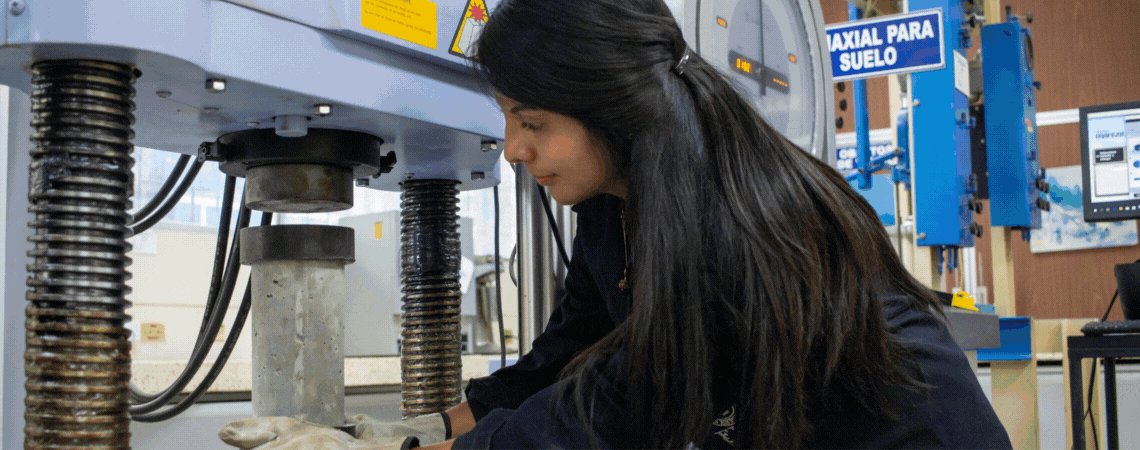CE Mission
To train competent professionals, with entrepreneurship and leadership capabilities, in the development of projects related to infrastructure design, construction, supervision, and operation, as well as scientific research on areas related to Civil Engineering. To generate, adapt, and transfer knowledge related to CE. To perform technological innovation for society welfare. To provide criteria and sufficient knowledge, in order to propose feasible solutions, considering ethical, moral, social, economic, and environmental aspects.
Program Educational Objectives (PEOs)
Civil Engineering (CE) graduates from ESPOL, after 3 to 5 years of professional practice, will have:
a. Provided effective civil engineering solutions to society, considering technical, economical, ethical, and environmental issues.
b. Achieved recognition due to excellence in either design, construction, or infrastructure management.
c. Kept up-to-date with developments in the area of civil engineering throughout their careers by having undertaken continuous training or graduate studies.
d. Promoted employment or innovation by means of leading initiatives within their organizations.
Profile for pre-professional internships (CE)
The following conditions enable CE students to conduct pre-professional internships:
a) Curriculum: When either level 300-2 or 38 subjects are approved. Thenceforth, the student has developed initial and intermediate competences, and abilities about certain CE program areas, such as Structural Engineering, Geotechnical Engineering, Construction Materials, or Surveying.
b) At the Level 500-1, the internships focus on every program area: Geotechnical, Transportation Engineering, Construction, Structural Engineering, Hydraulics, and Sanitary-Environmental.
c) Skills in handling computer aided design tools (CAD), and/or Geographic Information Systems (GIS).
d) Ability to generate information, analysis and interpretation of results.
e) Abilities to work individually or as part of a multidisciplinary group.
f) Effective communication (written and oral). Preparation of technical reports, proposals, studies.
g) Ethics and Professional Responsibility.

